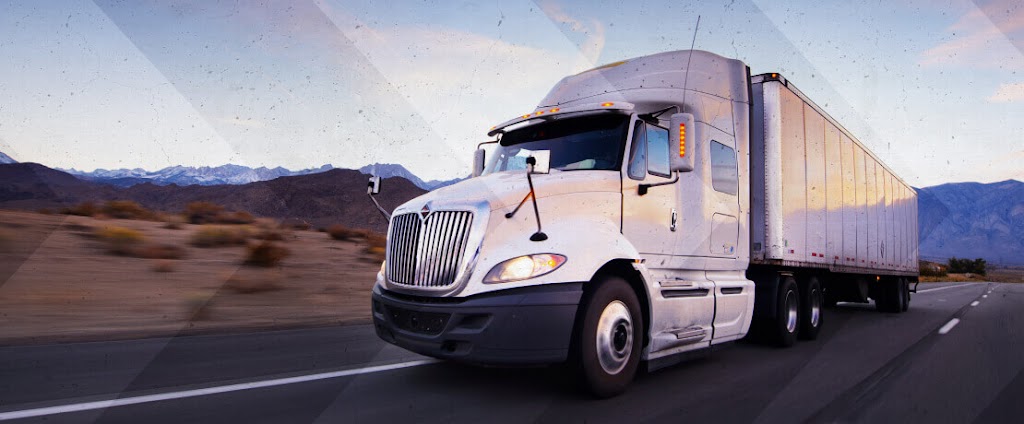In the vast and complex world of transportation, the truck plays an essential role in ensuring the smooth movement of goods across the country. But big responsibilities require strong protection. Truck insurance is a critical component of the logistics and transportation industry, providing coverage for a wide range of risks and uncertainties that drivers and vehicle owners face on the road. In this article, we’ll take a closer look at truck insurance, look at the types, importance, frequently asked questions, and finally highlight the importance of road safety.

Types of truck insurance:
Truck insurance includes a variety of insurance options tailored to the different challenges faced by those working in the trucking industry. One of the most important categories is liability insurance, which protects against damage or injury to the insured truck. This insurance covers liability for property damage and bodily injury and provides financial coverage in the event of an accident. Another important aspect is cargo insurance, which covers the transported cargo. It reduces financial costs for both truck drivers and shippers by providing coverage for cargo damage or loss during transit. Physical damage insurance covers the cost of repairing or replacing the truck in the event of an accident, theft or vandalism. Bobtail Insurance is also designed specifically for drivers who drive trucks without a trailer. This coverage provides protection while the truck is being used for non-commercial purposes. Auto general liability insurance also covers liability risks not directly related to the operation of the truck, such as injuries at the trucking company’s premises.
Importance of truck insurance:
Truck insurance is not only a legal requirement, but an essential component to the sustainability of the trucking industry. It acts as a safety net to protect truck drivers and vehicle owners from financial ruin should an unexpected event occur. Traffic accidents, cargo theft and natural disasters can cause significant financial losses, hindering a company’s ability to maintain high profit margins. Insurance acts as a buffer and ensures that such incidents do not end with the shipping company.
In addition, comprehensive insurance can be a competitive advantage in your industry. Customers and partners often prefer to work with carriers and carriers that demonstrate a commitment to risk management and financial responsibility. Therefore, truck insurance not only protects against potential liabilities, but also increases the credibility and trust of your trucking company with stakeholders.
FAQ: Navigating Complexity:
1. Why do you need truck insurance?
Truck insurance is necessary for several reasons. First, ensuring that truck drivers and carriers comply with regulations is a legal requirement in many jurisdictions. Second, it provides financial protection against a variety of risks, including accidents, cargo damage and liability claims. Uninsured truck drivers face significant financial losses that threaten the viability of their businesses.
2. How is truck insurance calculated?
Truck insurance premiums are determined by several factors, including the type of insurance, the value of the truck and cargo, the truck driver’s driving history, mileage, and safety measures implemented by the trucking company. Safe driving records and clean driving records often lead to lower insurance premiums.
3. What does cargo insurance cover?
Cargo insurance covers goods transported by truck. Provides coverage for damage or loss in transit due to accidents, theft or other covered perils. This type of insurance is essential to provide both truckers and shippers with financial protection for the goods they transport.
4. Are there special insurance requirements for homeowners?
Yes, self-employed individuals are generally required to purchase a combination of liability insurance, cargo insurance, and physical damage insurance. Specific requirements may vary depending on factors such as the type of cargo being transported, contractual agreements with the carrier and regulatory obligations in the region of operation.
5. Can I adjust my coverage due to seasonal changes in business activity?
Yes, many insurance companies offer flexible policies that allow carriers to adjust their coverage based on seasonal fluctuations in business activity. This can be especially useful for those who deal with seasonal transport or those who experience fluctuations in demand throughout the year.
Conclusion: Move forward in faith:
In other words, truck insurance is essential to the dynamic and complex world of transportation. A variety of coverage options meet the specific needs and risks faced by truck drivers and vehicle owners. From liability protection to protecting valuable cargo and the trucks themselves, insurance plays a critical role in ensuring the stability and sustainability of the trucking industry. Understanding the importance of truck insurance goes beyond compliance. These are strategic decisions that affect the long-term viability and success of your trucking company.
Our FAQ highlights frequently asked questions and provides detailed information about truck insurance. Moving forward with confidence requires not only skilled drivers and well-maintained vehicles, but also a comprehensive insurance strategy to protect against the uncertainties inherent in the transportation environment. As the wheels of commerce continue to turn, truck insurance remains a critical ally in providing the reliability and stability needed to support supply chains.


